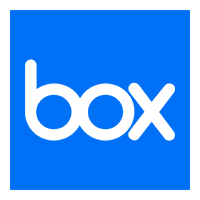Compare the top enterprise data companies to discover which one is best for your specific storage needs now.


Cloud Storage-as-a-Service (STaaS) providers give enterprise customers access to the latest storage technologies while managing the operational side for them, eliminating the need for them to invest in substantial upfront costs or ongoing maintenance. Cloud storage is cost-effective and offers robust security, scalability, and efficiency, making it easy for businesses to swiftly integrate it into their operations without facing growth limitations. Since cloud storage often houses sensitive business data, businesses must choose the right provider to ensure the security and integrity of their data. This article details the top enterprise STaaS providers currently on the market and the services they provide, and lists key selection criteria for choosing from among them.
With more than 90 percent of enterprise businesses using cloud storage, vendors have flooded the marketplace with solutions designed to meet the demand. Here are our top picks for cloud Storage-as-a-Service providers in 2023.

Amazon offers a range of storage solutions for businesses, including Amazon S3 (Simple Storage Service), an industry-leading product that helps companies scale storage resources efficiently. This object-storage solution meets fluctuating business needs with high-performance computing applications. It can be easily integrated with Amazon Web Services (AWS) and other third-party services for better data insights.
Top Features

Dropbox offers a suite of products to help with efficient data storage and organization, streamlined document workflows, automatic backup and restoration, secure sharing, and quick transfers. Used by more than 600,000 teams globally, the company offers various plan options for businesses of all sizes as well as custom solutions to meet your business goals.
Top Features

Google offers enterprise-grade cloud storage services with Google Workspace, including a wide range of essential business applications that make storing, accessing, and sharing data easier within the same platform. This flexible and innovative solution boosts business productivity and coordination with easy file sharing, centralized administration, and real-time collaboration. A free trial that makes it easier to evaluate.
Top Features

IBM offers different cloud storage solutions to support growing business needs. IBM Cloud Object Storage can accommodate exponential data growth with reduced storage costs, and offers flexible resiliency options across multiple geographic locations. With its robust partner ecosystem, IBM cloud solutions ensure fast data transfer and high availability. Built-in data lifecycle operations facilitate easy management of critical workloads.
Top Features

Nextcloud offers unified cloud solutions with multiple data storage systems. With a seamless user interface, it integrates all storage systems to eliminate data silos. Nextcloud is extremely user-focused and has a clear and transparent development process and offers a wide range of security features to ensure data protection.
Top Features

Microsoft Cloud is a preferred solution for data storage used by more than 85 percent of Fortune 500 companies. It offers a productivity platform with user-centric, AI-powered solutions for a secure and sustainable cloud storage system. It can be united with other Microsoft solutions and products for efficiency.
Top Features

Sync offers data storage solutions that can maximize business productivity and enterprise-grade infrastructure and certification to assure security and compliance. Sync’s file portal capabilities guarantee easy data transfer and sharing with clients, customers, and other stakeholders. It offers read/write and remote wipe permissions and real-time notifications on all share activities.
Top Features

Box offers a secure cloud storage environment with highly flexible controls and simplified compliance. With a suite of productivity tools, Box can efficiently automate business workflows with agile collaborations. It also has reliable document retention mechanisms and supports defensible eDiscovery.
Top Features
Cloud Storage-as-a-Service solutions offer the flexibility and scalability required in the current digital landscape, and can improve data performance for SMBs and large enterprises. Here are the most common use cases of Cloud STaaS.
Cloud STaaS solutions help businesses with advanced data transfer strategies and ensure a smoother transition. If you are migrating to the cloud, these STaaS providers can help you with large-scale transfers and can take care of data security with defined encryption mechanisms and protocols.
Advanced data operations deal with vast volumes of data for processing, monitoring, and analytics. Cloud storage makes this information readily available as well as accessible. Storage-as-a-Service providers can help with big data and analytics with more targeted relevance in a shorter time period.
As modern businesses use the cloud environment for deployment processes, STaaS providers can help. They offer container orchestration platforms, infrastructure solutions, and scalable storage options for smoother deployments.
In the current workplace scenario, where remote and hybrid working models are rising, centralized access and file sharing with robust access control mechanisms are necessary. Cloud Storage-as-a-Service solutions offer a centralized repository for files and data storage. It can be accessed from anywhere at any time by authorized users.
As essential security measures, businesses need regular data backup and recovery solutions to prevent major disruptions from affecting their operations. STaaS solutions can facilitate automated backup schedules and retention policies to prevent data loss and business interruption. They can also address increasing capacity requirements.
Here are a few tips to consider when selecting a Cloud Storage-as-a-Service solution for your business:
In the contemporary, data-centric business landscape, cloud Storage-as-a-Service solutions are pivotal tools for fostering business expansion, offering technical expertise and financial efficiency. Transitioning to cloud-native architectures is not merely a trend but a strategic move, given their capacity to bolster business modernization efforts. STaaS solutions are equipped with the requisite technologies to manage storage efficiently, but businesses must make informed choices when selecting STaaS providers to ensure alignment with their long-term objectives and operational needs.
Read next: Cloud Storage Pricing in 2023: Everything You Need to Know


Kashyap Vyas is a contributing writer to Enterprise Storage Forum. He covers a range of technical topics, including managed services, cloud computing, security, storage, business management, and product design and development. Kashyap holds a Master's Degree in Engineering and finds joy in traveling, exploring new cultures, and immersing himself in Indian classical and Sufi music. uns a consulting agency.

Enterprise Storage Forum offers practical information on data storage and protection from several different perspectives: hardware, software, on-premises services and cloud services. It also includes storage security and deep looks into various storage technologies, including object storage and modern parallel file systems. ESF is an ideal website for enterprise storage admins, CTOs and storage architects to reference in order to stay informed about the latest products, services and trends in the storage industry.
Property of TechnologyAdvice. © 2026 TechnologyAdvice. All Rights Reserved
Advertiser Disclosure: Some of the products that appear on this site are from companies from which TechnologyAdvice receives compensation. This compensation may impact how and where products appear on this site including, for example, the order in which they appear. TechnologyAdvice does not include all companies or all types of products available in the marketplace.